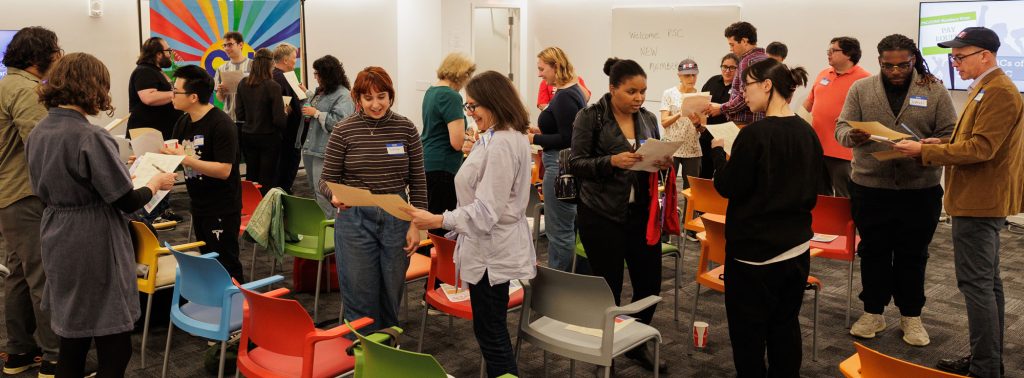More than two dozen people who have gained CUNY employment in the last year gathered at the union’s lower Manhattan headquarters on September 25 for a new member orientation, displaying growing energy in the PSC.
President James Davis told the members, who came from all around the city and represented both faculty and staff, that the PSC is a member-driven union, rather than a service-oriented one. By that he meant that while the union provides various services with its “extraordinary staff,” the “power of the union is in our membership,” he said.
“That’s what distinguishes the PSC.”
MEMBER TO PRESIDENT
Davis used his own story as an example. He explained that he arrived as a faculty member at Brooklyn College as a teacher, quickly becoming an active union member. But seeing the PSC organizing and making gains inspired him.
“I saw a union that knew how to build power and to win,” he said, noting that this led him to become involved in the chapter, later becoming chapter chair, then a PSC executive council member and eventually the president. “That’s transformational.”

New members play a game of PSC Bingo (Credit: Paul Frangipane)
Davis advised these new union members that they should find power in becoming active in the union and on their campus. “Find a way to remain active in the union, because that is what allows us to be the powerful union that we have become,” Davis said.
PSC officials and members explained to the group how the PSC offers a “union advantage” over non-union workplaces. Union members, they said, enjoyed higher wages, better benefits and the ability to speak up about problems on the job without fear of retaliation.
For example, union activists were pivotal in the first months of the COVID pandemic in fighting against campus administrations that either took little action to protect workers or wrongfully called nonessential workers onto campus.
UNION POLITICS
The event was part of PSC’s Union Week.
Julian Stark, an associate professor of biological science and geology at Queensborough Community College, and PSC First Vice President Jen Gaboury spoke about the need to support the union’s political activity by contributing to VOTE-COPE, the union’s political action committee. Union dues cannot be used for political activity, they explained, and thus it was important for as many members as possible to volunteer to contribute to VOTE-COPE, in order to build the union’s power in city and state politics.
Published: October 29, 2024

